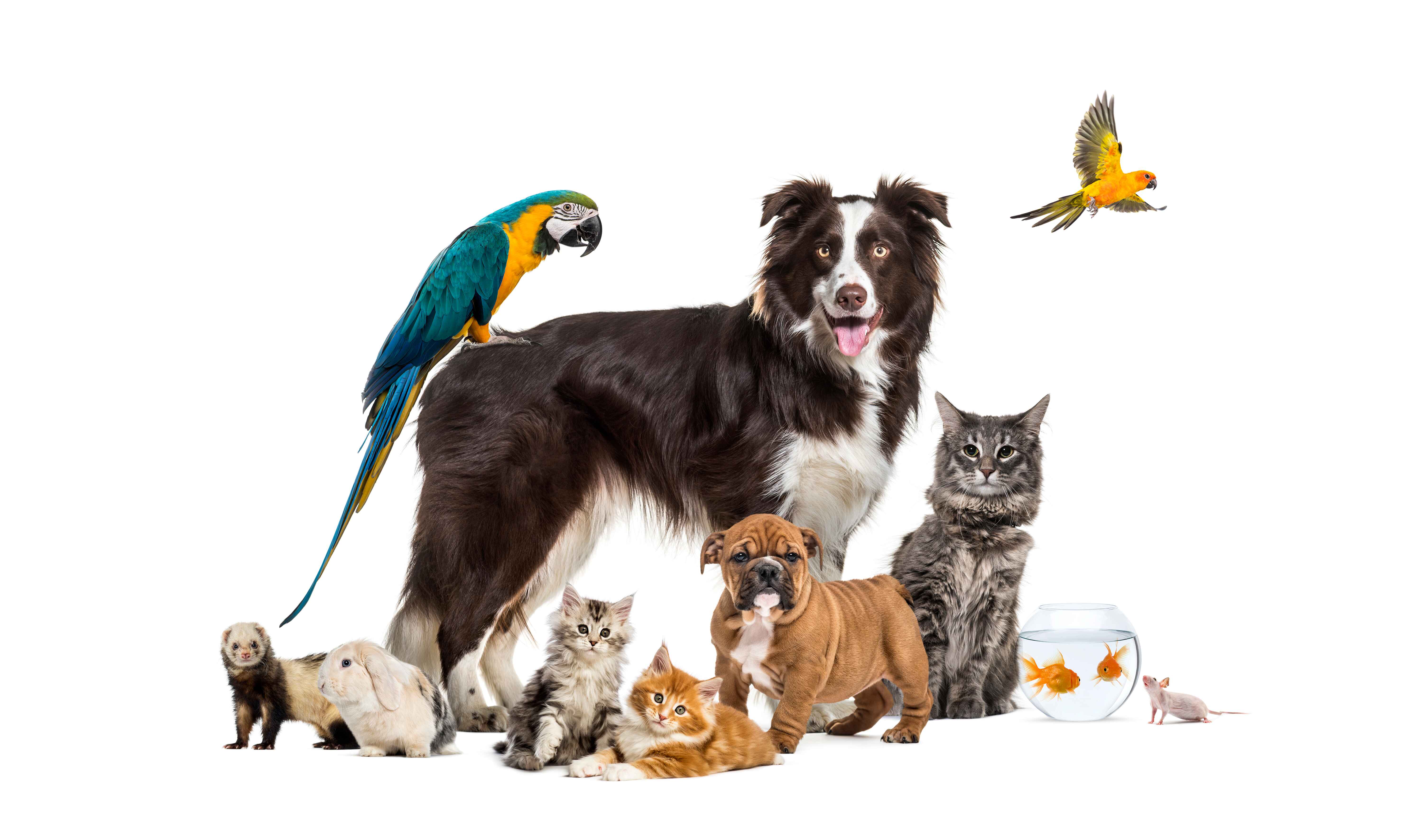Watch Out, Euthanasia Meds Found In Another Pet Food

8.20 BW Nonlead
https://www.barkandwhiskers.com/2018-04-06-nl-euthanasia-meds-in-pet-foods/
https://www.barkandwhiskers.com/p/5a77aa07-e8f7-4dd0-a3b6-19234983e698/
By Dr. Karen Shaw Becker
I'm sure most of you are aware of the Evanger's dog food recall one year ago for contamination with a euthanasia drug called pentobarbital.
Hopefully you're also aware by now that the same drug was found in Gravy Train dog food, produced by J.M. Smucker/Big Heart Brands (I can't be the only one who rolls my eyes at this name, right?). Here's the latest on the most recent pentobarbital contamination of pet food.
D.C. ABC Affiliate Demands Answers About Contaminated Dog Food
WJLA ABC 7 On Your Side Consumer Alert says this about pentobarbital:
"[It's] a lethal drug, most commonly used to euthanize dogs, cats and some horses. The deadly toxin is never permitted to kill animals that are part of the food supply and would violate federal law if it was."1
For their article, WJLA interviewed my good friend and pet food consumer advocate Susan Thixton of Truth About Pet Food, and she set them straight about how this federal law is constantly violated.
"Pet food violates federal law, is openly allowed by the FDA to violate federal law, billion dollar a year companies are making profit selling illegal adulterated products to unknowing consumers in the US every day," Susan said. "Consumers have no information. A consumer has to become a private detective to learn what's really in their food."
To their credit, WJLA decided to conduct their own small study in partnership with Ellipse Analytics, a laboratory that specializes in testing food for contaminants. They tested 62 samples of over 24 brands of wet (canned) dog food for pentobarbital.
"After months of tests and re-tests, one brand repeatedly came back positive for pentobarbital," says WJLA. "In total, we tested 15 cans of Gravy Train. Nine cans — 60 percent of the sample — were positive for pentobarbital. And while the levels detected were not lethal, under federal law they are also not permitted at any concentration."
WJLA asked veterinarian Dr. Nicholas Dodman, chief scientific officer for The Center for Canine Behavior Studies and former director of the Animal Behavior Program at Tufts University, how the pentobarbital got into the Gravy Train.
"It comes from euthanasia of animals using that euthanasia drug," Dodman explained. "So, these animals could be dogs, they could be cats, they could be horses — but how is it getting into the pet food? If they say it doesn't come from dogs, cats and horses where does it come from? It doesn't come from outer space."
And he believes the level of pentobarbital in the food, no matter how small, is irrelevant:
"Whether it's doing something or nothing, what's it doing there? Where did it come from? If they don't like the explanation that it's coming from animals that have been euthanized, what is their explanation as to how it gets in?" asked Dodman.
Why Does the FDA Consider Illegal Adulterated Ingredients To Be 'Fit for Animal Consumption?'
WJLA asked Dodman's question of both the FDA and the "big-hearted" pet food producer as part of a request for an on-camera interview, and, no surprise — both parties ignored the request. Smucker's eventually handed the station a statement saying they were conducting a "thorough investigation."
The FDA referred them to the Pet Food Institute, which is the processed pet food industry's largest trade organization. When WJLA asked the FDA to reconsider their response, the agency said it "will investigate the matter and take appropriate enforcement action." Undeterred, WJLA next contacted experts who told them, quite accurately, that euthanized animals are routinely collected by renderers, and when the carcasses are processed at the rendering plant, the euthanized animals may be blended into the batches of pet food.
In a 2004 report to Congress, which I discussed at length in a 2012 article titled "How to Know if the Poultry in Your Pet's Food is Chicken ... or Roadkill," sources for rendered materials were identified as, among other things, dead animals from farms, animal shelters and other facilities.
Federal law defines these ingredients as adulterated, and adulterated ingredients (e.g., "an animal which has died otherwise than by slaughter") are illegal in all food produced for consumption by humans and animals.
But as WJLA points out, the FDA, in its own compliance policy, gives the nod to pet food producers to violate the law by stating, "pet food consisting of material from diseased animals or animals which have died otherwise than by slaughter, which is in violation of 402(a)(5) … will be considered fit for animal consumption."
"The FDA tells the industry, 'Yeah, it's a violation of law, but go ahead, we're not going to do anything," says Susan Thixton. WJLA submitted a written request to the FDA to explain their policy that allows adulterated ingredients into pet food, and, no surprise — the agency ignored the request.
WJLA Report Leads to Class Action Lawsuit Against Big Heart Pet Brands
The WJLA investigation has resulted in a class action lawsuit against Big Heart Pet Brands filed on February 9 in a U.S. District Court in California by a Missouri woman who believes Gravy Train may have contributed to the death of her Miniature Schnauzer.2 The lawsuit wants Smucker/Big Heart to "… disclose its pet food sold throughout the United States is adulterated and contains pentobarbital and to restore monies to the consumers and businesses who purchased the Contaminated Dog Foods …."3
Later in February, Smucker/Big Heart voluntarily withdrew 10 varieties of Gravy Train dog food, along with certain shipments of Kibbles 'N Bits, Ol' Roy and Skippy.4 (A complete list of the products pulled from store shelves — all of it canned dog food — can be found here.) In early March, the FDA notified Smucker/Big Heart that its voluntary removal of products was now considered a recall, based on a test confirming the presence of pentobarbital in the tallow the company used in the recalled pet foods.
Smucker's Response: Minimize the Problem and Spin the Solution
Here's how Smucker's president of pet food and pet snacks, Barry Dunaway, framed the situation:
"Testing done by scientists at an independent, third-party microbiology laboratory indicates a single, minor ingredient (animal fat), used only in the four wet dog food brands, was the source of the contamination."5
For the record, the "minor ingredient" as Dunaway calls it, which is animal fat, appears in the top five or six ingredients in the recalled Gravy Train products I quickly checked online, including Chunks in Gravy with Lamb & Rice Chunks, Chunks In Gravy with T-Bone Flavor Chunks and Chunks in Gravy with Chicken Chunks. Also from Dunaway:
"We stopped production at our manufacturing facility that makes these product lines until we could obtain the ingredient from a new supplier, and we are no longer sourcing the ingredient from the original supplier."
Since Smucker/Big Heart is using rendered ingredients in their products, I don't think it matters which renderer the company does business with. Renderers are renderers. From the 2004 report to Congress mentioned earlier:
"Renderers annually convert 47 billion pounds or more of raw animal materials into approximately 18 billion pounds of products. Sources for these materials include meat slaughtering and processing plants (the primary one); dead animals from farms, ranches, feedlots, marketing barns, animal shelters, and other facilities; and fats, grease, and other food waste from restaurants and stores."6
Renderers drive around in specially designed trucks picking up dead farm and ranch animals, as well as dead pets from animal shelters. They also collect fat, grease and other human food waste from food outlets. Also from the 2004 report:
"Elsewhere, independent renderers collect and process about half of all livestock and poultry that die from diseases or accidents before reaching slaughter plants (Sparks 2002).
U.S. farm animal mortalities in 2000 included approximately 4.1 million cattle and calves (totaling 1.9 billion pounds); 18 million hogs (1 billion pounds); 833,000 sheep, lambs, and goats (64 million pounds); and 82 million chickens and turkeys (347 million pounds), according to Sparks, which examined USDA data."
All renderers operate the same way — there are no "clean" operations to my knowledge — so Smucker's plan to change their animal fat (tallow) supplier is nice PR but essentially meaningless. Also concerning is the fact that "animal fat" is generic. We know "beef tallow" comes from cows and "chicken fat" comes from chickens, but what species does "animal fat" come from? DNA testing would be needed to determine this.
I applaud WJLA for taking the vast amount of time and money necessary to expose this issue. If more organizations invested this amount of energy into finding out the level of mycotoxins, lead (and fluoride and arsenic), PCBs, phthalates, PBDEs (flame retardants), AGEs, heterocyclic amines and acrylamides (just to name a few) in pet food, more people would think twice about feeding "feed-grade" pet food to their pets.
Fed Up Yet? What to Do if You No Longer Trust the Pet Food Industry
There are few situations in which the old adage "let the buyer beware" is more appropriate than when deciding what food to offer your animal companion.
Between low-grade ingredients, too-frequent recalls, and an exploding population of pets with chronic digestive issues, allergies and degenerative disease, it's no wonder so many pet parents are exploring homemade diets, fresh food diets made by smaller, transparent pet food producers, raw diets and other alternatives to the dead, rendered, dubious, processed stuff.
My advice? Search this website for more information on choosing the best diet for your pet. There are dozens of videos and articles here that can help you become more knowledgeable about pet nutrition so that you can make the best diet choices for your own dog or cat.
If you want to help change the deceptive practices occurring in the pet food industry, I recommend becoming a member of the Association for Truth in Pet Food, which is the only organization out there committed to holding the regulatory agencies and AAFCO accountable.

